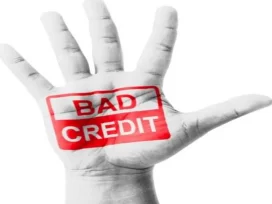
How Does a Home Equity Loan Work?
Whether you’re looking to make improvements to your home, or you want to start a new business, a home equity loan can be a good way to do it. The interest rate will depend on your credit score, and you can borrow a large lump sum, or consolidate your debt.
Rates are based on your credit score
Getting a home equity loan is a great way to use your home as collateral. It can be a good way to pay for college, home improvements, or consolidate high-interest debts. However, it can also put you at risk of losing your home.
Home equity loans can have different terms, fees, and interest rates, and there are many factors that determine your eligibility. Generally, you need to have at least fifteen percent equity in your home. In addition, your credit score is a key factor in determining the terms and interest rate you receive.
When you apply for a home equity loan, you will have to fill out a Loan Estimate form. This form itemizes your closing costs, as well as the terms of the loan. It also specifies how much you are allowed to borrow. The amount you can borrow depends on your credit history, but a few lenders have higher minimums.
To qualify for a home equity loan, you need to have a credit score of at least 620. However, there are some lenders that will accept higher scores, so make sure to shop around.
You can borrow a large lump sum
Getting a home equity loan is a smart move, especially if you are looking for a large lump sum of money quickly. However, you should check your credit to make sure that you qualify for the loan. You can also compare the rates of home equity loans offered by different banks and lenders.
A home equity loan is similar to a mortgage in that you pay it off in regular, monthly installments. However, because you are using your home as collateral, the lender can foreclose on your home if you cannot repay the loan. It is also important to keep in mind that you might be subject to fees and closing costs, which could add to the cost of the loan.
Home equity loans are usually the best option for larger one-time expenses. They are also a good choice for debt consolidation or long-term investments. Some lenders offer fixed-rate options that can help you budget for your new debt. Typically, you can borrow up to 85% of the equity in your home.
You can consolidate debt
Using a home equity loan for debt consolidation can help you simplify your finances. However, you need to be careful. You may also increase your debt load or risk losing your home if you default on your loan.
The best way to find out if a home equity loan is right for you is to compare your options. It’s important to make a budget and understand your reasons for debt. If you can cut down your spending, you’ll have more money to pay off your debts.
Home equity loans can be used to consolidate other loans or to pay off high-interest consumer debt. They typically come with lower interest rates than other types of loans. They’re also good for paying off revolving debts, such as credit card bills. They may also help you avoid foreclosure if you fall behind on payments.
When deciding if a home equity loan is right, you also need to consider your future goals. Do you plan to live in your home for the long haul? Are you a responsible borrower who is careful with your money?
You can fund a business venture
Whether you are starting a business or buying an existing business, a home equity loan can help you fund your venture. The first thing you need to do is create a financial plan. This will allow you to make the most of your home equity investment.
If you are starting a small business, you will need financial equity, as well as sweat equity. Starting a business requires a lot of time and effort, so you want to have the resources you need to get your business up and running. However, it is not guaranteed that you will make money with a new venture. In order to start a business, you will need to make sure that you have a passion for the product or service you are offering.
Another way to fund your business is to get outside investors. This can include friends, family, and colleagues. You may also want to consider debt-based crowdfunding. This is a new type of funding where you are able to raise money from individuals who are interested in investing in your business. This type of crowdfunding may require a fee and interest. You will also need to repay your debt on a set schedule.







